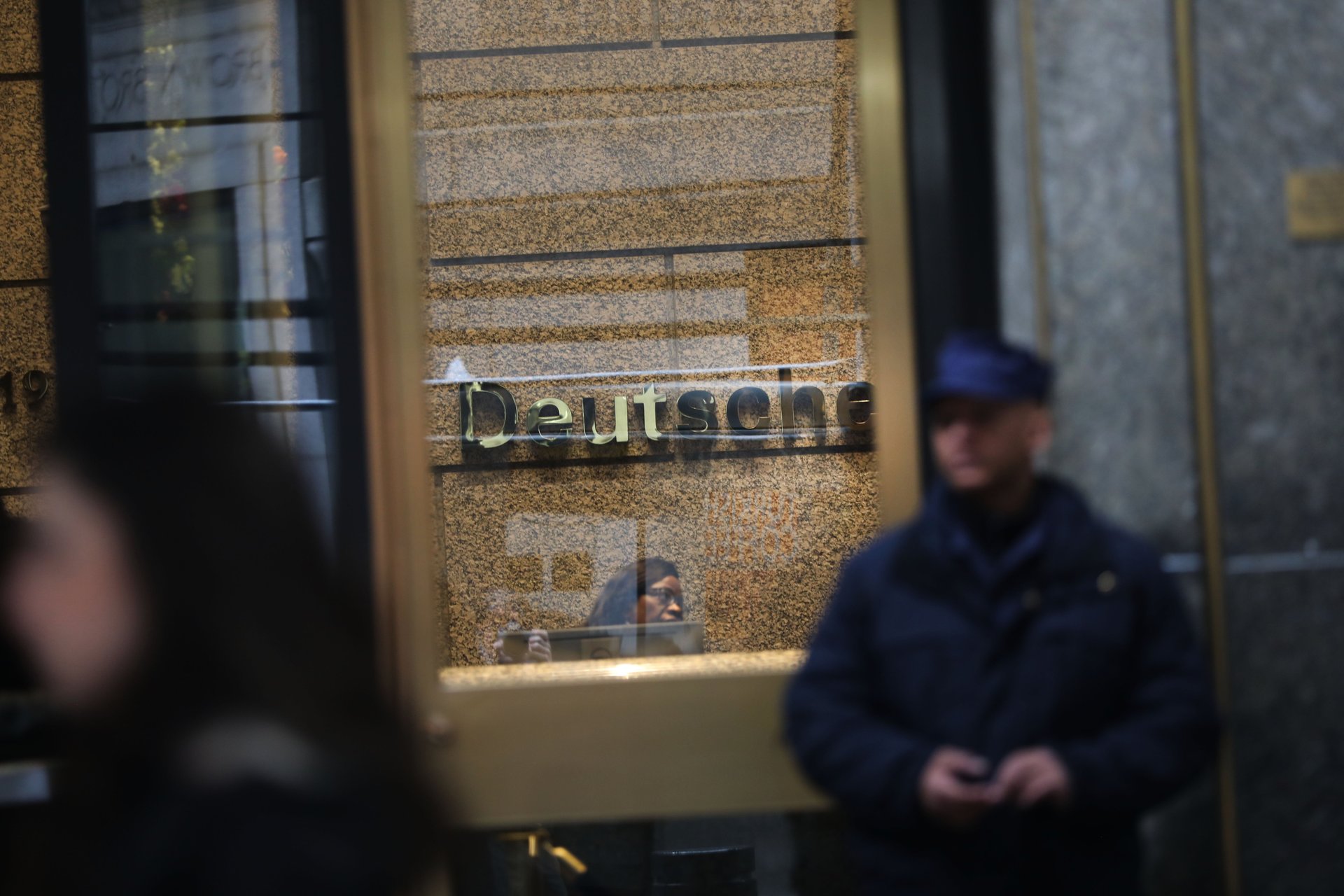How Donald Trump got his Deutsche Bank loans
The New York attorney general is suing Donald Trump for defrauding banks

Deutsche Bank has emerged as the star witness in New York attorney general Letitia James’ case against Donald Trump and the Trump Organization.
In a suit filed last week, James accused Trump and his organization of defrauding the German investment bank and others by exaggerating the value of his properties. Deutsche Bank, which extended Trump hundreds of millions of dollars in loans for hotel and resort development projects in the past decade, is cooperating with her office’s investigation, James said at a press conference.
The New York attorney general’s (NYAG) complaint describes an environment in which Trump was able to pass off faulty financial records as true, duping financial and government institutions in the process. Trump attorney Alina Habba called the lawsuit meritless, saying the NYAG was “neither focused on the facts nor the law.”
How Trump’s relationship with Deutsche Bank evolved
The Trump Organization had done business with Deutsche Bank since the 1990s, but the pivot point in their shared history came in 2011 when the company switched from the commercial real estate division of the bank to the private wealth management division, according to the complaint.
In September 2011, Jared Kushner introduced his brother-in-law Donald Trump Jr. to Rosemary Vrablic, a managing director and senior banker at Deutsche Bank. Over the next decade, Vrablic would become known as Trump’s “personal banker.” (Vrablic resigned in December 2020 along with fellow Deutsche Bank banker Dominic Scalzi after violating internal bank rules by personally investing in an apartment partially owned by Kushner, a client. Vrablic and Scalzi are currently barred by the Financial Industry Regulatory Authority, or Finra, from acting as brokers. Scalzi is not named in the complaint.)
The Trump Organization sought a loan for its golf course in Doral, Florida. The commercial real estate division called it “a tough asset and our initial reaction was not enthusiastic,” the complaint says.
But after shopping the loan around to other banks, Vrablic offered the best loan: her division’s deal came with a 2% interest rate vs. the commercial real estate division’s offer of 8%. “It doesn’t get better than this,” Ivanka Trump said. The tradeoff was that Trump would personally have to guarantee the full amount of the loan—$125 million—and maintain a net worth of $2.5 billion and $50 million in unencumbered liquidity.
When he saw the terms of the loan agreement, Trump Organization finance chief Jason Greenblatt was taken aback, according to the complaint. “Is DJT willing to do that?” he asked Ivanka. “Also, the net worth covenants and DJT indebtedness limitations would seem to be a problem?”
Greenblatt added that the personal guarantee was a “highly risky proposition” and conflicted with what Trump had told him in the past, the complaint states. “Obviously this is not my decision, but this is completely inconsistent with what he told me he would ever do again.”
Who did Trump defraud?
Trump was able to obtain the Doral loan, like numerous others outlined in the complaint, in part due to his statements of financial condition, personal balance sheets that James alleges contained fraudulent misrepresentations of his wealth, property values, and assets. Among the allegations she cites: Trump allegedly lied about the size of his Manhattan apartment, over-counted expected golf club membership, and violated the terms of a conservation easement to inflate his estimated worth and secure favorable loans.
In the complaint, Deutsche Bank is cast as one of the primary victims of Trump’s alleged fraud. In a statement to Quartz, bank spokesperson Dylan Riddle said:
“We cannot comment on the details of current or former client accounts, nor the substance of legal claims based on certain facts that the NYAG, itself, has alleged were unknown or unavailable to Deutsche Bank at the time. The Bank takes its legal obligations seriously, including appropriately responding to authorized investigations and proceedings.”
The NYAG informed Deutsche Bank of the falsified financial documents in 2020 as part of an investigative subpoena. Afterward, Deutsche Bank asked the Trump Organization questions about the financial documents. The company “refused to respond” so Deutsche Bank decided to “exit its relationship” with the company, the complaint says.
At least one of the Deutsche Bank loans—a $125 million credit for the Doral property—was refinanced by Axos Bank, a San Diego-based lender, in May 2022. Since the Trump Organization paid $295 million of what it owes to Deutsche, the German bank now only holds $45 million in Trump associated debt, according to the NYAG’s filing. NYAG estimates that Trump saved between $85 million and $150 million in interest rate savings because of the misleading statements.
Banks weren’t the only institutions defrauded. Deutsche Bank loaned the Trump Organization $170 million to buy and renovate the Old Post Office building in Washington DC, a bid that Trump won for his Trump International Hotel.
Trump’s financial documents were used in the bidding process with the US General Services Administration (GSA), a process that the Trump Organization bragged was “one of the most competitive selection processes in the history of” the GSA.